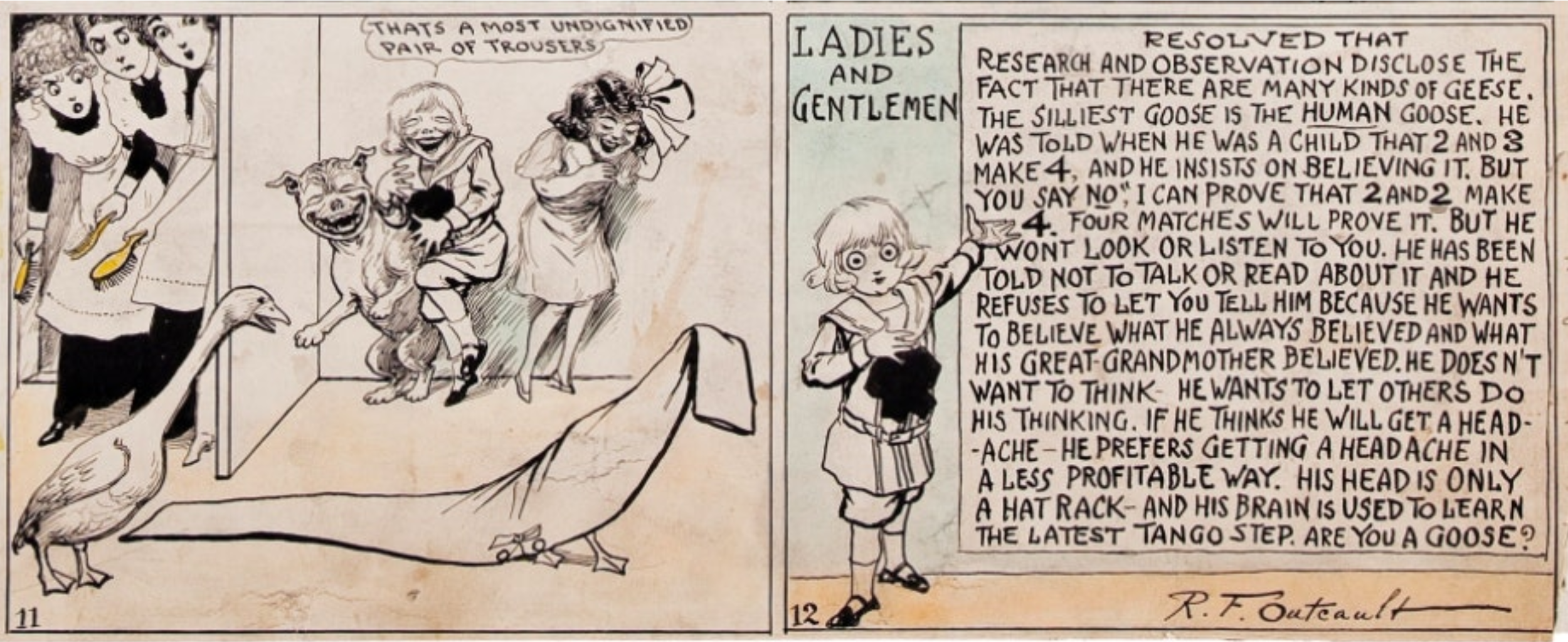From the Yellow Kid to Hyperbole and a Half
I was getting ready for the Year Long Online Program, looking at the history materials , and I realized there was something vaguely Hyperbole and a Half-like about the Yellow Kid, the general shape of the character and the words not in word balloons but floating, or even on the body.
Cartoonists and artists are products of their times. Yellow Kid's Richard Outcault was commenting on the societal upheavals and fissures in immigrant-rich cities. Brosch is commenting on how hard it is to keep yourself together in today's world.
It's not a stretch to say there is a direct line, jumping 50-60 years each time, from
1890s, 1900s Yellow Kid - reactions to society
1950s, 19060s Jules Feiffer - reactions to the societal self
2000s, 2010s, Allie Brosch - reactions to the isolated self
I think, there are lots more connections to make.
Brosch's impulses doesn't seem to fit in the rest of the world.
Frederick Opper's the Happy Hooligan is similar, he doesn't have the abilities to live in the world. (and notice the nearly inexplicable, odd shape on each's head.)
They are easily pleasured, but it gets them into trouble. It's not hard to see Opper's wild blurring in Brocsh's all-digital Cake:
There's more Outcault to discover too, in Buster Brown. Buster making a mess of things, offering reflection at the end. Of course Buster's messes are intentional:
Brosch's reflections are shorter, directed at the self, but related in how they are the intellect trying to sort out the mess the impulses made.
We are products of our times and our society. Brosch is just one of the better of thousands of artists describing how their neurosis hamper their ability to relate and stay sane.
Feiffer + Schulz and others mid-century couldn't understand societal roles but those roles were more codified and complex than they were at the turn of the century, when we you were pretty much your class and race.
We should probably mention 70-80s Cathy Guisewite, and Cathy, the character who can't get her mind and body to cooperate.
"Not fitting in" is a common theme in comics and comedy. There are tons along this spectrum, I'm sure. But I'll stop here for now.
Cheers!
Tom












